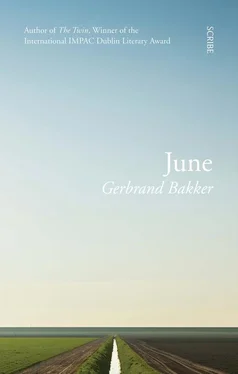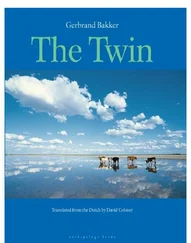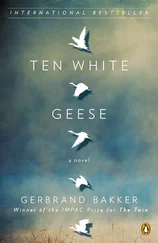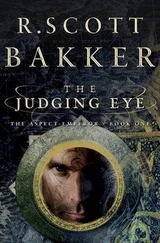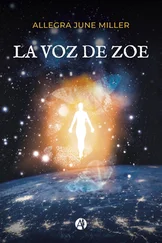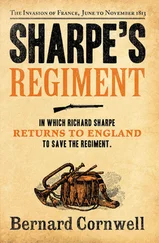He leans on the bales of straw, still panting a little from the climb. He wants his mother to say something friendly to him, if only to get that softly echoing ‘Klaas’ out of his head. He hardly gets a friendly word out of his wife these days. She makes demands, she gives commands. He’s forty-bloody-eight years old and he wants his mother to say a kind word. Maybe he even wants her to tell him what to do.
After hearing something fall and smash below, Anna Kaan turned over onto her stomach. Had he put on the radio specially for her? She pictures the ‘dyed-in-the-wool North Hollanders’, Rie and Jenneke. She’s finished the Viennese biscuits. Together with the lukewarm water and the advocaat, they’ve made her a little queasy. She feels like something fresh: a sour apple, crispy French beans. That’s easy enough, that last one, later — the vegetable garden is full of them. She hears Klaas panting. She knows he wouldn’t have any trouble at all climbing the straw without a ladder. She’s also realised by now that her heart’s not really in it; she can’t even look at the parade sword without feeling hotter than she already is. Strangely enough, her feet are still cold and there’s a numbness in her calves. She feels embarrassed. She’s up here because it’s something she’s been doing for almost forty years; she does it as a reminder, out of habit. I’d be better off lying on the beach next to Rie and Jenneke, she thinks. Going for a swim together. What do I care that the sun’s disappeared?
The three of them are stuck here together: her, Klaas and Dirk. And the swallows of course. She lets her oldest son wait a while first.
‘Klaas?’
‘Yeah?’
‘What are you doing?’
‘Standing here.’
That has her stumped. She turns over onto her side; her neck is stiff and her arm hurts. She rubs her breastbone, the nausea is already starting to fade a little.
‘Did you just call me?’
‘No,’ she lies. ‘Why would I call you?’
‘Because you need me.’
‘I don’t need anyone.’
‘Why don’t you come back down?’
‘Mind your own business.’ She hears Klaas let go of the bales, the straw rustles, and then she hears him take a few steps across the wooden floor. Towards the hatch? ‘You have to get Jan away from the cemetery.’
‘Why?’
‘No, just do it. Johan will be there too.’
‘Johan? What makes you think that?’
The first time Johan was lost he was lying under the platform Zeeger had built for the washing machine. In the new milking parlour. It was a Miele top-loader. Apparently Miele was the ultimate when it came to washing machines, but this one was constantly broken. The repairman would drive up in his van with Miele, nothing better written on the side. ‘Humph,’ she says now, almost forty years later. They shouldn’t have been allowed to drive around in a van like that. And just like the baker used to call out ‘Here it is again!’ ad infinitum, laying the bread on the kitchen table with a flourish, the Miele man always used to say, ‘Ready to wash, Mrs Kaan.’ Until the next time it broke. She found Johan when she went to put on a load in between searching. He was lying on his side under the platform with his knees pulled up. A year or two older and he wouldn’t have fitted. ‘I wanted to go away,’ he said, when she asked him what he was doing there. She asked him why. ‘Because,’ he said. Later, he often crawled in under the washing machine. Sometimes she pulled him back out, sometimes she left him lying there until he’d had enough.
‘“Humph”?’ Klaas asks. ‘I asked why you think Johan will be there too.’
Oh, Klaas, that’s right. ‘I know he’s there.’
‘Johan’s in Schagen. How would he get here? I don’t think they’re allowed to just up and leave.’
‘As if he’d pay any attention to that.’ She turns onto her back and spreads out her arms. She catches the smell of her own body and thinks of the beach again, the sea. ‘You going?’
‘Maybe.’
‘I’m your mother!’ She scowls. And she’s heard something in his voice that’s aroused her suspicions. ‘Or have you already been?’
‘Of course not. What for?’
‘You going?’
‘Yes.’
‘Right now?’
‘Yes. Or soon.’
‘Then you’ll be doing something useful at least.’
Klaas doesn’t say anything else. She hears him climb down through the hatch, then something else falls — strangely enough it sounds like a bike — and going by the noise, Klaas hasn’t landed on his own two feet either. ‘Oh, fucking hell,’ he swears. The way him and his wife just sat there looking miserable and puffing away through the whole dinner just to wind up Jan. The food lying on the table instead of on the plates. Johan, who had started throwing chips — and earlier in the day sitting there like an imbecile, with a monkey on his head. It wasn’t even anything new, they’d always fooled around with their food. If they were angry they’d turn tins of treacle upside down on each other’s heads, or stick a carefully licked finger in someone else’s custard. Zeeger, ending the festivities with his ‘So, the day went quite well’. If she’s not very mistaken, he even let out a sigh of satisfaction.
It’s quiet again down below.
No, she’ll never celebrate anything again.
And yes, that was where she found Johan. Under the washing machine. But that was later. On the day itself, he and Jan were at Tinie and Aris’s. She’d rung herself, even though she can hardly believe that now. When did she find the time? Was it before or after she called an ambulance? And Klaas, where was Klaas? The baker kept coming in that horrible light-grey van. He just gave up his cheerful ‘Here it is again!’ Of course he kept coming, it was his job, and he could hardly employ someone else just for them. When Blom’s Breadery closed down because there was too much competition from the supermarket in Schagen, the whole village was up in arms. Not that they had any right to be, seeing as everyone realised it was their own fault. The whole village except her. She was relieved. There was a load of washing on the line too: whites, sheets flapping in the June wind. Maybe her mother brought it in. And someone — no idea who — turned off the radio. That was good because they kept playing that horrible song every hour or so.
Anna Kaan picks up the bottle of advocaat, unscrews the cap and lets the thick drink slide down into her throat. It makes her drowsy. At birthday parties she limits herself to one or two small glasses. When the big creaking starts — What is that? Is it the main timbers? The beams? Or is it something in her own body? — she screws the cap back on. A quarter left. Is the wood, all the wood, expanding because it’s so hot? Or is it shrinking? She looks up through the hole in the roof at the sky, which does seem to have turned white now, or grey at least. Her time on the straw is almost over. A raindrop, she thinks. When I feel the first drop, I’ll seize on it to go back down. She takes a few more mouthfuls of warm water to wash the sweet taste out of her mouth and shakes her legs to make her calves wobble. The numb feeling doesn’t go away.
The walking stick with the ivory knob. That will give him the support he needs. The hydrangea leaves are looking a little better, at least they’re not limp any more. The gravel crunches under his feet, the point of the walking stick pokes holes in it. He’d rather not bump into anyone on the short walk from his house to the cemetery. He wants to walk purposefully, and the walking stick helps with that too. He thinks about Dinie’s dog; but that’s going too far in the other direction. It’s big and sluggish and never seems that interested in what’s happening around it. Its name is well chosen though, Benno. No, a schnauzer, he wouldn’t mind that, with a short sharp name.
Читать дальше
